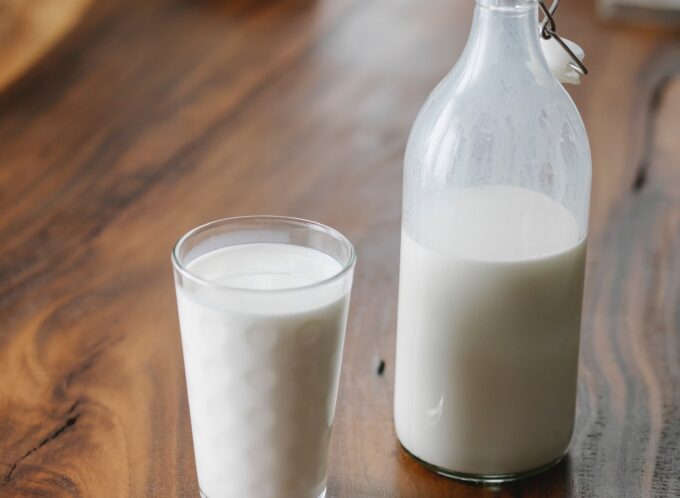Which type of milk is right for you?

Once upon a time milk solely came from cows but now supermarkets are packed with enough milk alternatives to curdle your brain. This post weighs up the nutritional benefits of the most popular varieties.
Cow’s milk: Full cream
We all know calcium is an essential bone-building mineral and cow’s milk is one of the richest ways to reach your recommended daily dose. Cow’s milk also provides a unique package of over 10 essential nutrients, including protein, vitamin D, vitamin B12, zinc, magnesium, and also has a low glycemic index (GI), which is important for managing blood-sugar levels.
“Unless you have a medically diagnosed lactose intolerance, you don’t have to cut out dairy and a few glasses a day (250 ml) can be part of a balanced eating plan.”
Cow’s milk: Skim/reduced fat
Reduced-fat milks are slightly higher in calcium and protein than regular milk, and does not have added sugar as commonly perceived.
The down side? You’ll absorb less of the nutrients in milk without the fat, particularly the fat-soluble vitamins such as vitamin D, A and E.
Soy Milk
If you’re looking to get closest to cow’s milk, soy milk is your best bet, just because it has more protein. Made from soy beans, this milk provides one of the highest sources of plant protein and has modest amounts of fibre. However, there are many controversial issues surrounding soy milk, in particular isoflavones (a type of phytoestrogen) thought to have a protective effect against some cancers.
To date, the evidence is not strong enough to recommend that all women with a history of breast cancer eat more soy. However, soy foods do appear to be safe, and possibly beneficial for female breast cancer survivors.
“Choose calcium-fortified brands and look for unsweetened varieties, as well as varieties made from whole beans, rather than soy protein isolate.”
Almond Milk
Made from ground almonds and water, this milk is rich in vitamin E – a key nutrient for cell regeneration in the body. This milk quite low in kilojoules and saturated fat compared to cow’s milk and other dairy-free varieties. The protein in almond milk is also relatively low compared to cow’s, so if you’re whipping up a smoothie, opt to add other protein-rich sources such as nut butters.
“While almonds themselves are a good source of fibre and protein, almond milk contains skimpy amounts of these nutrients.”
Oat Milk
Made from a mix of oats, water or oat flour. It has a lower fat content and contains cholesterol-lowering beta glucans. The protein content is relatively low compared to soy and cow’s milk.
Rice Milk
Made from brown rice and water, rice milk is the least allergenic of all non-dairy milks, making it a good choice for people with lactose or nut allergies.
Nutritionally speaking, rice milk doesn’t bring too much to the table. It’s low in protein, while containing significantly more sugars and carbohydrates — making it a high-GI food. So it’s the least desirable choice for people with diabetes or people who want more protein, such as athletes or the elderly.
Coconut Milk
Not to be confused with coconut water or canned milk used in sauces or curries, this milk is made by blending water and coconut milk squeezed from grated coconut flesh. It has very low protein and next to no calcium compared with other milks. It also has an incredibly high saturated fat content, which has been linked to raising bad (LDL) cholesterol levels — a risk factor for heart disease. However, we know that the saturated fat in coconut is probably not as detrimental to cardiovascular health as we once thought, but I still I recommend watching the amounts you consume.
“Choose dairy free milks that are fortified with at least 300mg calcium per 250ml (1 cup) – this will help you meet more than 30% of your daily recommended dietary intake in each serve.”
Visit The Right Balance to find out what you should look for on the labels of each type of milk.
Kathleen Alleaume is a trusted specialist in nutrition and fitness, and holds a degree in Exercise Science and a masters in Nutrition. She works with Uncle Tobys as their Nutrition Ambassador and consults for other major Australian food and beverage companies.